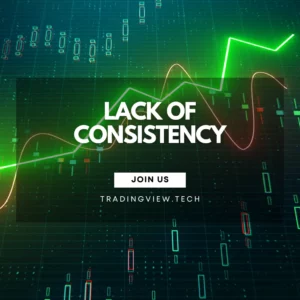Entering the world of trading is an exciting yet challenging journey. Many beginners are drawn to the financial markets by the promise of quick profits, but they often underestimate the complexities involved. Trading requires not only technical knowledge but also psychological resilience, strategic planning, and disciplined execution. Unfortunately, novice traders frequently fall into common traps that hinder their progress, leading to unnecessary losses and frustration.
One of the primary reasons for these mistakes is the lack of experience and unrealistic expectations. Many beginners believe that trading is a shortcut to wealth, only to realize that it demands patience, continuous learning, and a well-thought-out strategy. The financial markets are unpredictable, and without a solid foundation, new traders may find themselves making impulsive decisions, risking too much capital, or failing to manage their emotions. Understanding the most common pitfalls is the first step toward becoming a more disciplined and successful trader.
In this article, we will explore some of the biggest mistakes made by beginner traders and provide actionable strategies to avoid them. Whether you are just starting or have already faced some challenges, recognizing these errors will help you refine your approach and build a more sustainable trading career. Let’s begin by addressing one of the most dangerous habits that derail many new traders—emotional trading.
Emotional Trading: How Emotions Lead to Costly Mistakes
One of the most destructive habits that beginner traders develop is letting emotions dictate their trading decisions. Fear, greed, excitement, and frustration can all interfere with rational thinking, leading to impulsive trades that result in significant losses. Many traders experience a rush of excitement after their first profitable trade, leading them to take excessive risks in pursuit of even greater rewards. Conversely, a series of losses can trigger panic, causing traders to exit positions prematurely or abandon their strategy altogether.
Fear and greed are two of the most powerful emotions that influence trading behavior. Fear can prevent traders from taking necessary risks, making them hesitant to enter potentially profitable trades. It can also lead to panic selling when the market experiences a temporary downturn. On the other hand, greed often pushes traders to hold onto winning positions for too long, hoping for even higher profits, only to see their gains vanish when the market reverses. These emotional reactions are natural but must be controlled to ensure long-term success.
Another common emotional mistake is revenge trading. When traders suffer a loss, they often feel an overwhelming urge to recover their money quickly. This leads to reckless decision-making, where trades are placed without proper analysis or strategy. Revenge trading rarely ends well, as it is driven by frustration rather than logic. Instead of regaining losses, traders often dig themselves into deeper financial trouble.
How to Avoid Emotional Trading
To maintain discipline and prevent emotions from taking control, consider the following strategies:
- Develop a Trading Plan: Having a well-defined trading plan with entry and exit rules helps eliminate impulsive decision-making. Stick to your strategy regardless of market fluctuations.
- Use Stop-Loss Orders: Setting stop-loss orders ensures that losses are limited and prevents traders from holding onto losing positions in the hope of a turnaround.
- Keep a Trading Journal: Recording trades, emotions, and outcomes helps traders identify patterns in their behavior and improve decision-making over time.
- Take Breaks and Manage Stress: If emotions start to cloud judgment, step away from the market. Avoid overtrading and give yourself time to analyze situations objectively.
Mastering emotional control is crucial for long-term success in trading. By recognizing how emotions impact decisions and implementing strategies to manage them, traders can develop a more disciplined and calculated approach. Next, we’ll explore another major mistake that often leads to unnecessary losses—ignoring risk management.
Ignoring Risk Management: The Costly Consequence of Neglecting Safety Measures
Many beginner traders focus solely on potential profits while overlooking the importance of risk management. This oversight can be devastating, as even a few poorly managed trades can wipe out an entire trading account. Risk management is not just about minimizing losses—it’s about ensuring long-term survival in the market. Without proper risk controls, traders expose themselves to unnecessary financial danger.
One of the most common risk management mistakes is overleveraging. Leverage allows traders to control larger positions with a smaller amount of capital, but it also amplifies both gains and losses. Beginners often misuse leverage, thinking it will multiply their profits without considering that it also increases the risk of rapid account depletion. Another issue is failing to set stop-loss orders, leaving trades vulnerable to significant price swings. When traders don’t establish clear exit points, they may hold onto losing positions for too long, hoping for a recovery that never comes.
A lack of diversification is another key problem. Many beginners put all their capital into a single asset, believing in its success. However, markets are unpredictable, and even seemingly safe investments can experience sharp declines. Spreading risk across multiple trades and asset classes helps reduce the impact of a single loss.
How to Implement Proper Risk Management
- Follow the 1-2% Rule: Never risk more than 1-2% of your total capital on a single trade. This ensures that even a series of losses won’t completely drain your funds.
- Use Stop-Loss and Take-Profit Orders: Always set predefined levels for exiting both winning and losing trades to lock in profits and minimize risk.
- Avoid Overleveraging: Use leverage cautiously and ensure you have enough capital to sustain potential market fluctuations.
- Diversify Your Portfolio: Spread your investments across different markets, assets, and trading strategies to reduce overall exposure.
By applying strict risk management rules, traders can safeguard their capital and maintain consistency in their trading journey. Next, we’ll discuss another common issue that hinders progress—overtrading.
Overtrading: Why More Trades Don’t Mean More Profits
Many beginner traders believe that placing more trades will lead to higher profits, but in reality, overtrading often results in excessive losses and emotional burnout. Overtrading occurs when traders execute too many trades in a short period, either due to impatience, greed, or a lack of a clear strategy. Instead of waiting for high-quality opportunities, they jump into the market at every possible chance, hoping to maximize returns.
A key reason for overtrading is lack of patience. The financial markets do not always present ideal setups, but many traders feel compelled to stay active. This leads to forced trades with poor risk-to-reward ratios. Another contributing factor is chasing losses—traders who experience a bad streak often attempt to recover their money by trading even more aggressively, which typically worsens the situation.
Overtrading also results in high transaction costs. Every trade incurs fees, spreads, or commissions, and frequent trading can eat away at potential profits. Moreover, excessive trading can lead to emotional exhaustion, making it difficult to stay objective and disciplined.
How to Prevent Overtrading
- Stick to a Trading Plan: Only take trades that fit within a well-defined strategy, rather than acting on impulse.
- Limit Daily Trades: Set a maximum number of trades per day or week to maintain control over trading activity.
- Wait for High-Probability Setups: Focus on quality over quantity—avoid taking trades unless they meet strict entry criteria.
- Take Breaks: If you feel the urge to trade excessively, step away from the screen to regain perspective and control.
Avoiding overtrading is essential for maintaining both financial and mental stability. By prioritizing quality trades over sheer volume, traders can improve their long-term performance.



